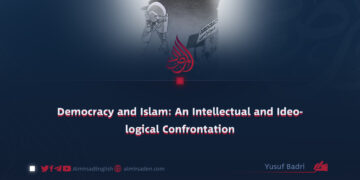Author: Zia Bari
The noble religion of Islam places immense value on justice, benevolence, and human compassion. These principles are not just individual guidelines but foundational aspects of the social system in Islam.
It is evident that Islam is a religion of moderation, and extremism leads societies astray. However, if someone presents the principles of Islam and Sharia in a way that deviates significantly from the true message of Islam, both Muslims and non-Muslims must seek knowledge and investigate Islam’s teachings to the best of their ability to counter such misrepresentations.
Here are some key examples of how ISIS misrepresents Islam:
1. The Major Sinner
Scholars of Ahlus Sunnah wal Jama’ah unanimously agree that a Muslim who commits a major sin remains within the fold of Islam but is considered sinful. Such an individual must repent and seek forgiveness from Allah. Apostasy is not applied in this case; instead, they are encouraged to make amends and turn back to Allah.
However, ISIS, relying on the ideology of early extremists, labels those who commit major sins (such as adultery, theft, drinking alcohol, murder, usury, and breaking fast without reason) as apostates. They consider their blood and wealth lawful for themselves.
2. Command for Mercy and Humane Treatment
Islam emphasizes mercy, compassion, and respect toward prisoners. The Prophet Muhammad (peace be upon him) instructed fair treatment of captives during battles. For instance, after the Battle of Badr, he ordered his companions to treat the prisoners well, providing them with food and water.
In contrast, ISIS brutally tortures prisoners captured in battles, subjecting them to various punishments, including burning them alive—an act explicitly prohibited in Islamic teachings.
3. Prohibition of Extremism
The Quran instructs Muslims to adopt the path of moderation and avoid extremism. Islam advocates for kindness and gentle behavior rather than harshness.
Yet, ISIS promotes extremism to further its false agenda. Acts such as bombings in mosques, schools, and public spaces; indiscriminate killing of Muslims; declaring those who oppose ISIS as disbelievers; enslaving Muslim women; and unjustly confiscating Muslim property are glaring examples of their extremism.
4. Destruction of Islamic Sites and shrines
Islam emphasizes respecting shrines and historical and religious sites as they are part of Islamic heritage and the legacy of the Prophet Muhammad (peace be upon him) and his companions. However, ISIS has destroyed numerous Islamic and historical monuments and shrines under its extremist ideology, resulting in the loss of significant Islamic heritage.
5. Enslaving Muslim Women
Islam grants specific rights to Muslim women and strictly forbids oppression against them. The Quran and Sunnah even prohibit harming the women and children of non-Muslims.
Despite this, ISIS enslaves the women of Muslims who oppose them or refuse to join their ranks. In Syria, Iraq, and Afghanistan’s Nangarhar province, they have forcibly taken Muslim women from their homes and, under coercion, married them to their fighters.
These actions are not only un-Islamic but also violations of human rights. Islam is a religion of peace, mercy, and justice. Through their extremist practices, ISIS misrepresents Islam and distorts its true image.


















































